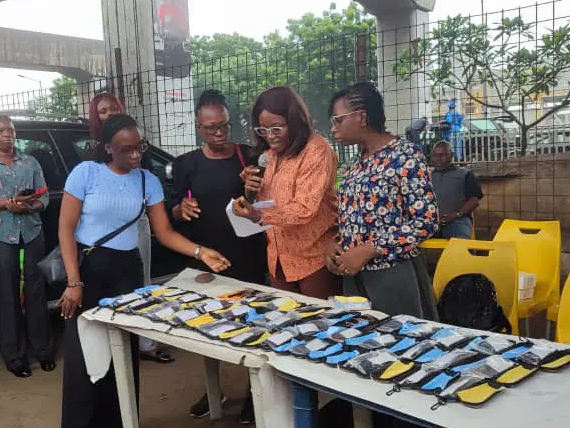In Ikeja, Lagos, a powerful transformation is underway. When Vanguard Media Limited recently donated over 50 free eyeglasses to members of the Newspapers and Magazines Distributors’ Association of Nigeria (NDAN), Ikeja Zone, the event drew praise for its broader impacts.
The gesture, which followed a larger medical outreach that included free health checks, consultations and drug prescriptions, highlighted an often-overlooked problem: access to affordable eye care.
For newspaper vendors who rely on their eyesight to eke out a living, the free eyeglasses allows for more productivity.
Meanwhile, the Vanguard’s recent gesture reflects a growing movement of healthcare solutions by individuals and civil society initiatives. Nonprofits such as VisionSpring and Eye Foundation Community Health Initiative have carried out outreach programmes in low-income communities, providing free or subsidised eye tests and glasses.
Vanguard’s heft
As in the Ikeja gesture, these private efforts help to bridge inequality by focusing on those most at risk of being excluded from traditional healthcare systems. By combining awareness campaigns with direct support, such initiatives are solving immediate needs and also creating models for long-term community health engagement.
Media organisations like Vanguard are also uniquely positioned to lead in this space because of their reach and influence. Beyond distributing information, they can shape conversations about wellness while simultaneously offering tangible solutions.
Media’s expanding role
Vanguard’s efforts are reminiscent of past collaborations involving media houses that used their platforms for malaria prevention campaigns and HIV awareness programmes.
The ripple effects of such Corporate Social Responsibility (CSR) programmes extend far beyond the beneficiaries. They inspire other industries to consider how their core values and resources can be harnessed to address social issues.
Government partnerships with private organisations also provide a pathway to scaling these solutions. Lagos State, for example, has partnered with NGOs to set up mobile clinics in underserved areas, providing essential screenings for blood pressure, diabetes, and vision problems.
These collaborations reduce the pressure on overstretched public hospitals while making preventive care more accessible.
If more local councils follow Ikeja’s lead by embracing partnerships with media houses, faith-based organisations and medical NGOs, healthcare accessibility could be significantly improved for vulnerable groups like artisans, vendors and market women.
Equally significant is the personal empowerment that such initiatives bring. Testimonies from the beneficiaries reveal that something as simple as a pair of eyeglasses can boost confidence, restore livelihoods and strengthen communities.
This ripple effect illustrates a crucial point in journalism: that sustainable interventions often have outcomes that go beyond the initial problem.
Replicating these solutions poses a challenge, however. Affordable eye care is a widespread need, not limited to only vendors. To meet this need, more partnerships between private organisations, government and civil society must be forged. Innovative approaches like mobile eye clinics, low-cost eyewear production and digital platforms for health awareness could expand access across Nigeria.
Summary not available at this time.






